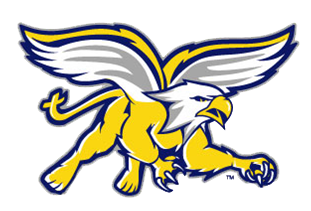CLASSICAL EDUCATION
CLASSICAL EDUCATION
Researching the programs and disciplines of Classical Education (Classicism) and classical schools produces a wide spectrum of philosophies and practices. For that reason, Christ Lutheran School (CLS) has developed a succinct explanation of how classical education is implemented in our learning environment. There are four styles of classical education: Christian Classicism, Moral Classicism, Social Classicism, and Liberating Classicism. Each requires a mention because CLS uses qualities of each in creating our uniquely balanced academic and spiritual environment.
Christian Classicism: The “Christian, Historical Worldview” is the foundation: History is the central focus of the curriculum and history is taught as God’s Story (His Story). CLS components: History is taught from a Biblical and Christian perspective; Courses in history are taught not social studies; Christianity is central in all we do.
Moral and Democratic Classicism: This is the traditional, classical, Greek thought that through knowledge, students will become good, moral people and good citizens. It is rooted in the Great Books of literature. CLS components: Reading curriculum uses classic literature and Christian values are taught through the literature. Classical literature is (1) Tested over time, (2) Often award winners, (3) Has rich language, and (4) Teaches a moral.
Liberating Classicism: This philosophy is grounded in discipline and structure, often in association with inner city programs, focused on liberating students from their current circumstance. CLS component: A strong, appropriate emphasis on proper behavior, Christian values, and decorum.
Christ Lutheran School is equipping the future generations of Christian leaders through Biblically-based, Christian studies and faith development to develop a deep love relationship with God, while simultaneously offering an academically challenging climate with the following three major goals classical components:
PROFICIENT READERS
- Multi-sensory, phonics-based reading instruction.
- Two grammar courses are used per grade, Shurley and Spalding, for a full experience.
- Classic literature is literature that has been over time, teaches virtues, and/or is award-winning. Classic literature is used for reading instruction, not reading textbooks, for authentic reading experiences.
- Latin, the root of 60% of the English language, is taught kindergarten through eighth grade.
ELOQUENT WRITERS
- A systematic writing process is in place kindergarten through eighth grade.
- The writing process includes composition, grammar, and communication.
- We work to teach our students that clear, concise, eloquent writing is the expectation. Excellent writing is the norm, brilliant writing is that for which we strive.
DEEP LOGICAL THINKERS
- All students are tracked for pre-algebra in seventh grade and algebra in eighth grade.
- Fun, logic puzzles (Mind Benders and Red Herrings) are used in each grade.
- Students receive three years of logic classes starting in sixth grade.
Additional Classical Components:
- Latin is taught in kindergarten through eighth grade.
- Art instruction and art appreciation
- Music theory and music appreciation
For more information about Classical Education,
visit http://www.veritaspress.com/
- Memorization- Bible passages, Presidents, States, history Timeline, and more
- History in place of social studies; Christian worldview
- Embracing the Grammar (K-4) and Logic (5-8) stages of the Classical Education Trivium model
Christ Lutheran School
11720 Nieman Road
Overland Park, KS 66210
Contact us at:
913.754.5888
School Hours
1st Bell – 8:15 am
Learning Begins – 8:30 am
Dismissal – 3:30 pm

